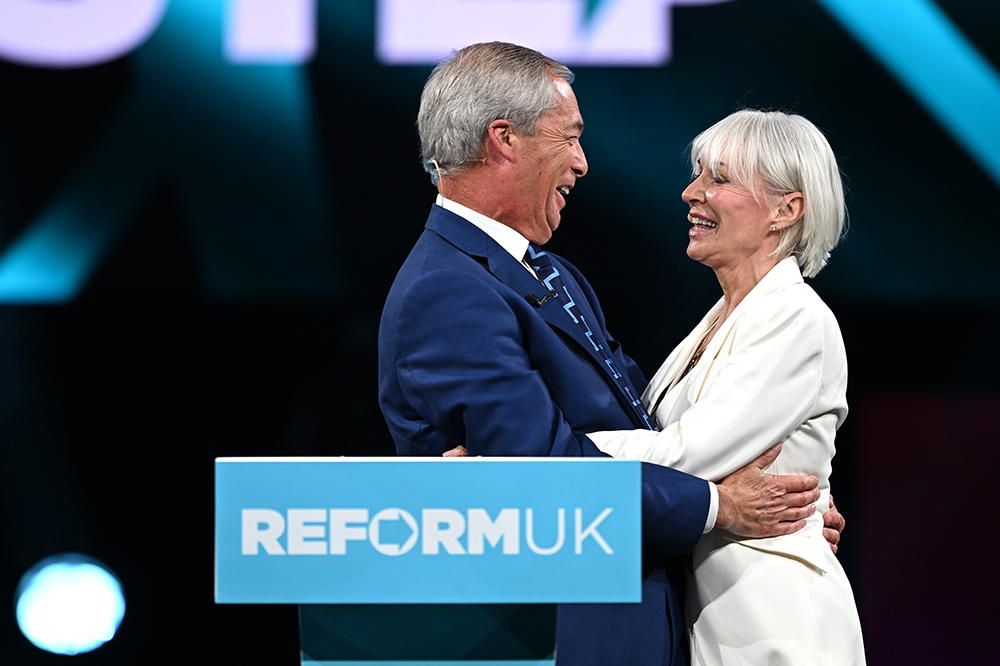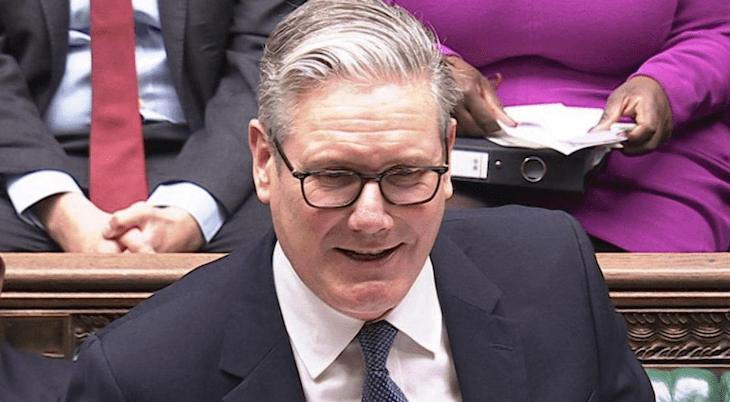
The days between my leaving the Tories and joining Reform were an odd uneven time. It was the hardest decision I have ever made – I’d been a Conservative party member for 30 years, after all. Before the announcement, only three people knew what I was planning to do. In Westminster almost everything leaks so we kept the information tight. Once I had made up my mind, Nigel Farage and I held several clandestine meetings in a secluded room in a Mayfair members’ club to decide how to break the news. I initially rather fancied defecting on the eve of the Conservative party conference, for maximum impact. But in the end we decided to drop the story in the Daily Mail on Thursday night. In Birmingham the next day, Nigel would reserve an extra 15 minutes during his opening speech at the Reform conference to introduce me. I would say a few words to the audience. Deed done.
In the days beforehand, as Keir Starmer dithered over what to do about Angela Rayner, I began to panic. I feared my defection would be blown out of the water by her tax-dodging exploits. Nigel, however, disagreed. He reasoned that the unfolding Rayner debacle fed into the now established narrative that the two traditional parties of power were as bad as each other. They had repeatedly failed the public and the nation for years, both divided, both incapable of governing with honesty or competence. As a Labour party member said to me: ‘We were supposed to be better than your lot – it looks like we might be worse.’
Rayner should have gone on Wednesday, of course, the moment she was caught red-handed. But it seems she thought she was untouchable. Like most MPs, she believed it was one rule for us and another for them. It took a rapid report issued by Sir Laurie Magnus into her conduct before Starmer had the cojones to allow her to resign. The Prime Minister hand-wrote Rayner a grovelling and vomit-inducing letter in which he fought for his own political life. If he had sacked her, it would have hastened the end of the Starmer/Reeves duo, as the wall of far-left MPs in the Labour party came crashing down upon them.
Jeremy Clarkson summed up the moment better than anyone in a tweet. He pointed out that we, the taxpayers, have paid for Angela Rayner her entire life. Her education, her wages at the council, her MP salary, and it was the compensation paid to her son via the Treasury which provided the deposit for her party pad in Hove.
When Nigel welcomed me to the stage in Birmingham, I hadn’t prepared a speech (I certainly had no idea that my entrance would involve pyrotechnics and smoke jets). I figured that if I didn’t know in my heart what it was I wanted to say, then I didn’t deserve to be there. When I walked on, accompanied by pumping music and fireworks, in a white suit and with one of those microphones which curl around the ear and sit close to your mouth, I must have looked like an aged pop star. But the words came. I had made the right decision.
Not that most of my bitter former colleagues see it that way. The refrain parroted in Tory circles is that Reform is ‘a one-man personality cult’. Conversely, I have always been bemused by how those on the left of the Tory party, the wets and the modernisers, when challenged on their political views, leap to the defence that ‘the party is a broad church’, as though this is a virtue of conservatism. That, unlike socialists, conservatives could stretch their views across the political spectrum and that it works. In fact, as has been demonstrated on repeated occasions, when you are in government and have MPs to the left and the right, ‘broad church’ actually means ‘divided’ and ‘dysfunctional’.
I left the conference to go to the Cotswolds for the society wedding of the year, of Zac Goldsmith and Hum Fleming. Away from the screech of the media, it was the perfect antidote to politics. Beautiful, happy children running around, laughter and love in the air. Living in the Cotswolds, I still find it a novelty that you can watch the seasons as they change day by day. In the city, the change in temperature is all that one notices, not blackberries swelling, sloes weighing down branches or conkers waiting to fall. Early on Sunday morning, my four-year-old granddaughter and I went to the hedgerows, each with a basket to fill, as the moon still rested on the horizon. Lawns were dotted with fallen green apples; damsons were ripe. Fruitful days as we hover between summer and the autumn. As Sylvia Plath once wrote of this interregnum between the seasons: ‘The best of the summer gone, and the new fall not yet born. The odd uneven time.’








Comments